News 2023
An archive of Institute News from 2022
LOCOME project awarded Innovate UK grant to improve diagnosis and treatment of ME/CFS and Long COVID

The MRC Human Genetics Unit are collaborating with PrecisionLife and Action for M.E. in an innovative precision medicine project providing hope to millions in the UK: December 2023
DNA methylation rates linked to maximum lifespan in mammals

Researchers from the MRC Human Genetics Unit show slower DNA methylation rates in longer lived mammals, such as whales, compared to shorter lived mammals, like rats: December 2023
Dervil Dockrell and Kathryn Berg named 2023 Ehlers-Danlos Support UK Community Champions

The researchers were honoured at an award presentation at the Institute of Genetics and Cancer: November 2023
Professor Cathy Abbott named as co-director of Edinburgh Neuroscience
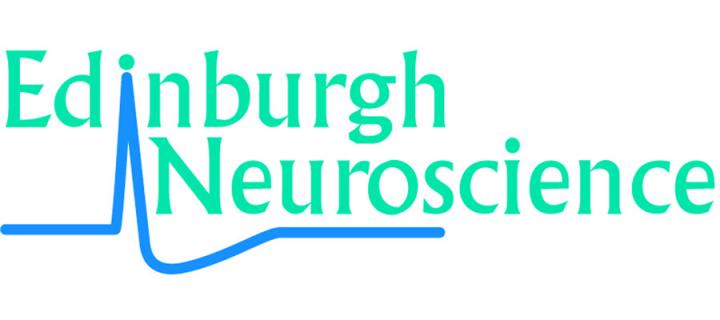
Alongside Professor Malcolm MacLeod, Professor Abbott will lead the community of neuroscience researchers: November 2023
Sara Brown appointed to prestigious Grant Chair of Dermatology

Clinical academic dermatologist Professor Sara Brown was awarded the historically significant position in October 2023
Shining a Light on Breast Cancer
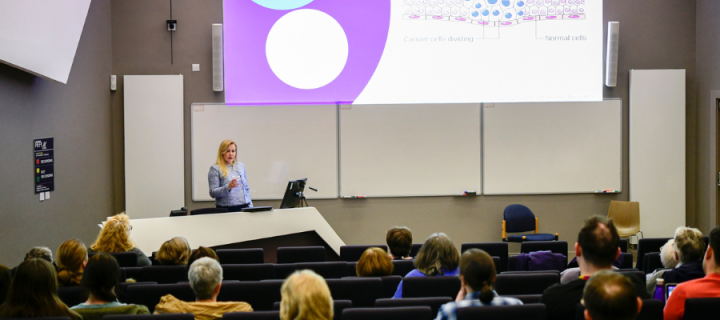
During Breast Cancer Awareness Month we look back at our public Shining a Light event: October 2023
Carol Monaghan MP visits DecodeME team
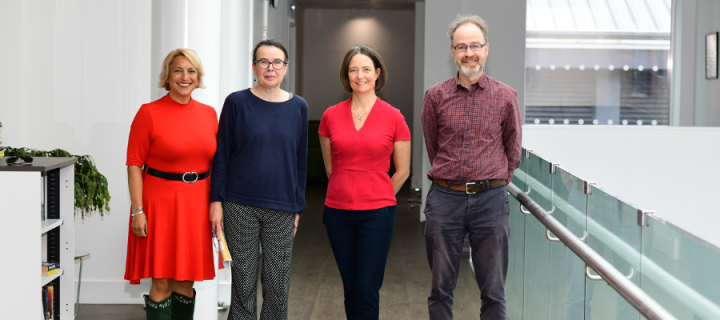
The Shadow SNP Spokesperson for Education and Science, Innovation and Technology visited the MRC Human Genetics Unit to learn about the study on 27 September.
2023 Cross-Disciplinary Fellows welcomed

Alina Kumukova, Andrii Iakovliev and Yavor Novev join the Institute of Genetics and Cancer.
Renal Ciliopathies National Network launches

The network, part of the £14 million MRC and NIHR funded UK Rare Disease National Platform, aims to improve the care of children and adults affected by renal ciliopathies.
Local community welcomed for Doors Open Day

The Institute of Genetics and Cancer welcomed nearly 200 visitors for Doors Open Day: September 2023
Postdoc Appreciation Week 2023 Awards

Congratulations to Dr Elias Friman on receiving the Postdoc Recognition Award for Student Supervision and Support - September 2023
2023 Hastie Career Advancement Fund and Early Career Awards winners announced

Congratulations to Joanne Simpson and Simone Pelliciari, who were awarded grants from the Hastie Career Advancement Fund, and the 7 other IGC researchers who received Early Career Awards.
Celebrating Technician Week at the University of Edinburgh

The essential work of technical staff has been highlighted through Technician Week events across the University in September
New potential treatments for polycystic liver disease

In a Europe-wide research collaboration, groups at the MRC Human Genetics Unit joined forces to investigate the formation of cysts and the development of polycystic liver disease
Clinical trial begins for new cancer drug

Clinical trials have begun for a drug candidate for hard-to-treat cancers, discovered at the University of Edinburgh and licensed by US biopharmaceutical company Nuvectis Pharma, Inc.
Study identifies missing link in DNA replication initiation

International team employs AlphaFold-Multimer to uncover the molecular role of the human disease protein DONSON; Sept 2023
Study shows women more severely affected by ME/CFS

MRC funded research gives insight into disease severity and co-existing conditions inn study participants: August 2023
School pupils take part in Science Insights work experience programme
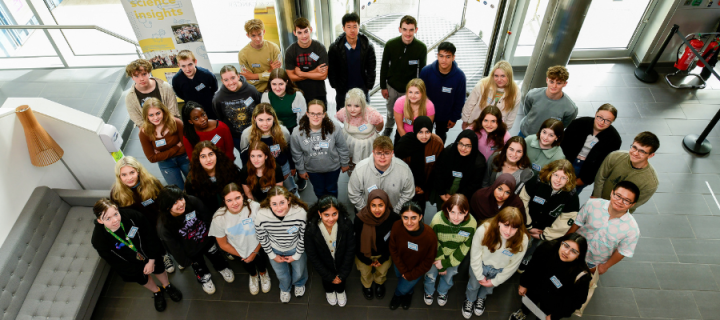
Over 40 pupils from 37 schools across Scotland, from Nairn to the Scottish Borders, visited the Institute as part of their week-long look into scientific careers.
£46.3 million funding boost to MRC Human Genetics Unit
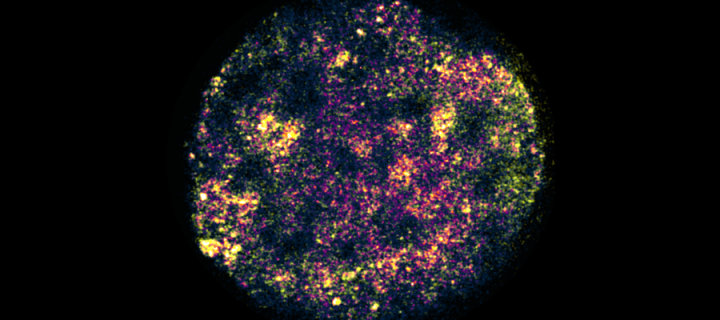
Ongoing research into how genetic code can influence health and disease has secured major financial investment from the Medical Research Council.
Over 100 associations between blood DNA methylation sites and common disease states identified

Researchers from the Institute of Genetics and Cancer have established a comprehensive map of epigenetic associations with common human diseases
Institute welcomes UK Eye Genetics Group annual conference
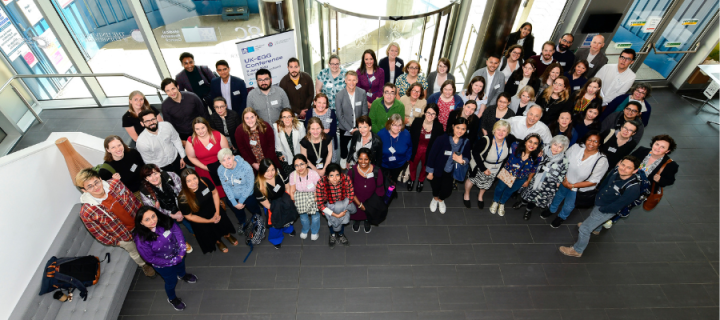
On 9 June, the IGC hosted the 2023 meeting of the UK Eye Genetics Group (UK-EGG) – a community of clinicians and geneticists with a specialist interest in ophthalmic genetics.
AI algorithms find drugs that could combat ageing

Three drugs that could help stave off the effects of ageing have been discovered using artificial intelligence (AI), a study suggests.
Core genes for type 1 diabetes revealed

Researchers have identified nine core genes that play a key role in increasing the risk of developing type 1 diabetes.
Sara Brown joins the European Society for Dermatological Research board

Professor Sara Brown has been elected to join the board of the largest dermatological research society in Europe, the European Society for Dermatological Research (ESDR).
Allele-specific protein complex assembly counteracts the dominant negative effect
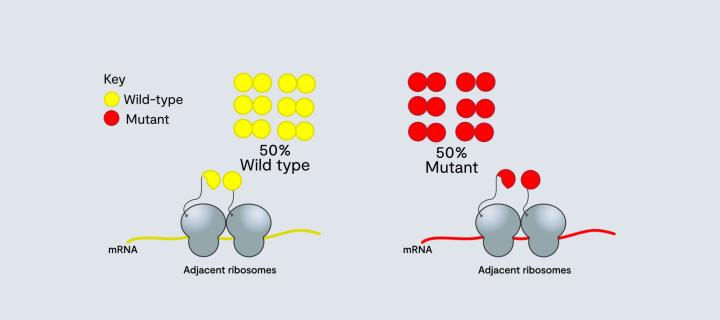
Mihaly Badonyi and the Joe Marsh Research Group at the MRC Human Genetics Unit propose through a study published in Science Advances: May 2023
Shining a Light on Skin Cancer

The Institute and Robertson Construction Central East joined forces for the week of Melanoma Monday to raise awareness of the risks of skin cancer: May 2023
Double testing better at identifying bowel cancer

The accuracy of detecting bowel cancer is increased to almost 100 per cent by carrying out a common test twice rather than once, a new study shows.
Life-saving cancer drug takes a major step closer to patient care

A new drug candidate for hard-to-treat cancers, discovered at the University of Edinburgh and licensed by biopharmaceutical company Nuvectis Pharma, Inc. has received US Food and Drug Administration (FDA) clearance to proceed to clinical trials.
Boost for bowel cancer research in Scotland as first surgical research chair appointed

Farhat Din becomes Scotland’s first-ever Colorectal Cancer Surgical Research Chair in a bid to tackle the nation's second-biggest cancer killer: April 2023
Zebrafish Facility Team win College Community Engagement Award

Winners of this year's College of Medicine and Veterinary Medicine Staff Recognition Awards were announced on 30th March at a celebration event at Summerhall: April 2023
Thousands of people diagnosed with rare genetic diseases in major research study
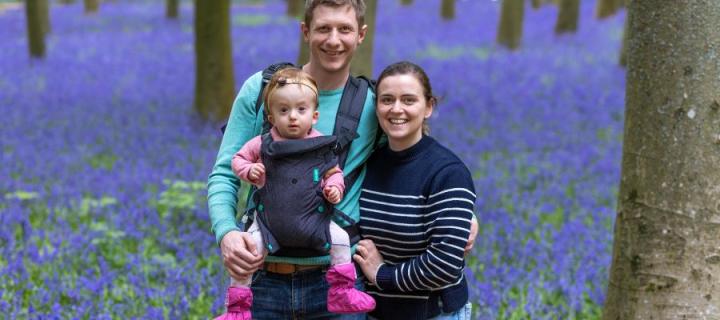
Around 5,500 people with severe developmental disorders now know the genetic cause of their condition, thanks to a nationwide study which will help improve diagnosis across the world: April 2023
New test could help identify type 2 diabetes risk

Analysing changes to DNA in the blood can improve the ability to predict a person’s risk of developing type 2 diabetes within a decade.
Research reveals Orkney link to BRCA1 gene
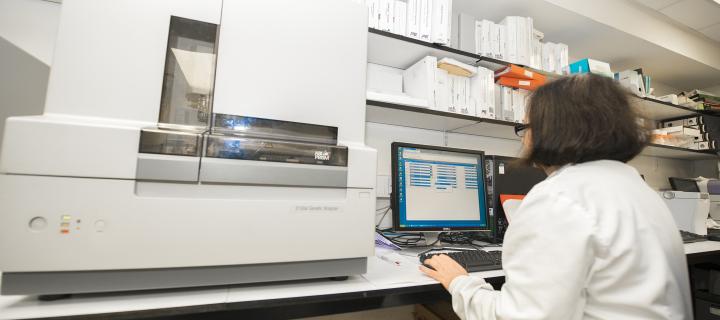
One in 100 people who have grandparents from Orkney have a gene variant that causes a higher risk of developing breast and ovarian cancer, study shows: March 2023
Adhesion protein that regulates gene transcription via direct signalling across the nuclear envelope
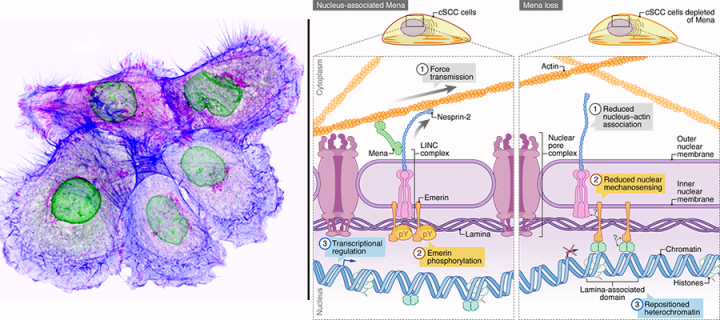
Edinburgh-led study identifies a novel function for the cell adhesion protein Mena at the nuclear membrane, where it regulates actin-nuclear lamina associations, nuclear architecture, chromatin repositioning and gene expression.
More than 500 genes are linked to lung health, new study finds
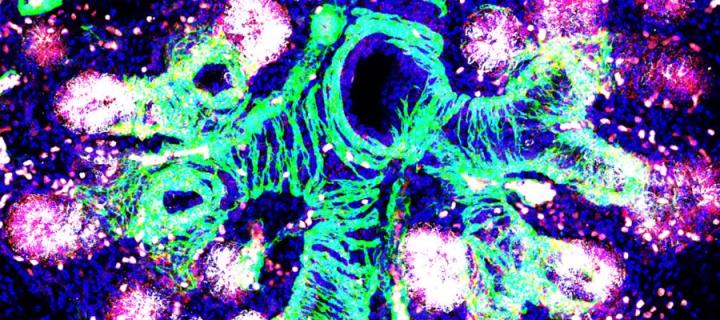
Genomes from over half-a-million participants, including from Viking Genes and Generation Scotland data, were analysed: March 2023
Didier Devaurs takes his research to UK Parliament

Didier, Cross-Disciplinary Research Fellow at the Institute of Genetics and Cancer, attended Parliament to present his research to a range of politicians and a panel of expert judges, as part of STEM for BRITAIN on Monday 6th March.
Radiotherapy optional for older breast cancer patients
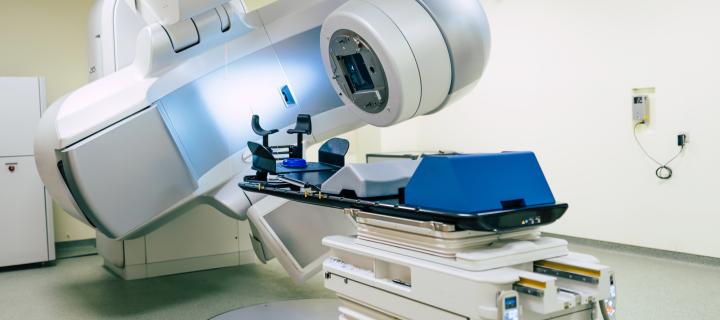
Radiotherapy does not improve survival rates in older patients with early breast cancer, new research suggests.
Gerard Brien joins the Institute as principal investigator

Dr Gerard Brien, a childhood cancer researcher and an international leader in the field of chromatin biology, joins the Institute of Genetics and Cancer.
£4m for Scotland Will Help Find New Cancer Treatments

The development of new cancer treatments in Scotland is to receive major funding of up to £4m providing future hope for people diagnosed with the disease: January 2023
Dr Chris Boyd’s research group stages a public engagement activity to highlight Cystic Fibrosis gene therapy research
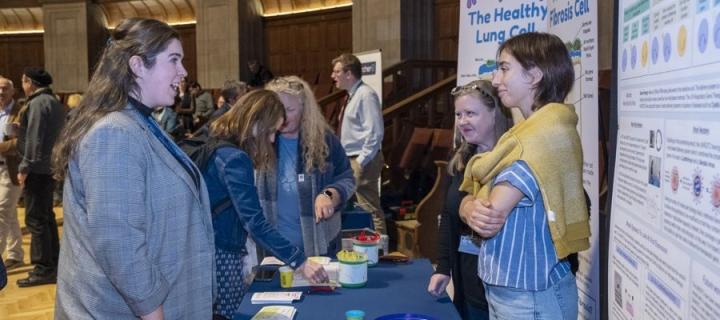
The Boyd Research group presented the ‘Target the Lung’ public engagement activity to University of Edinburgh staff at an event organised to celebrate the University’s REF results.
Genome project sheds light on rare diseases in Scotland

The detection and management in routine care of inherited rare and serious conditions can be improved by genome sequencing, according to a new study.
Transcriptomic profiling may identify patients with breast cancer who can safely omit radiation therapy after breast-conserving surgery

Patients with invasive breast cancer that had low scores on an investigational gene molecular signature had similar rates of local recurrence whether or not they received adjuvant radiation therapy after breast-conserving surgery: December 2022
Identification of a signalling axis associated with immune suppression and poor prognosis in pancreatic cancer

Using animal modelling and human transcriptomic datasets, Edinburgh researchers demonstrated that FAK-IL6 signalling amplifies pathways associated with immune suppression and poor patient prognosis in pancreatic ductal adenocarcinoma.
ecDNA copy number is key to high-level oncogene expression, new research shows
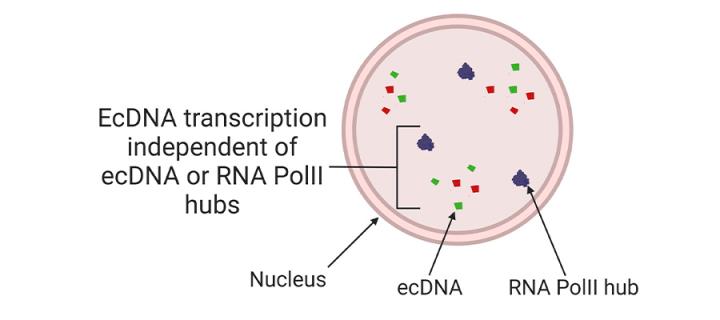
A recent study has demonstrated that, contrary to recent reports, the transcriptional output of oncogenes carried on extrachromosomal DNA in glioblastoma stem cells is driven by the copy number of the ecDNA, rather than their spatial localization into transcriptional hubs: December 2022
Longest follow-up of patients with early breast cancer shows radiotherapy does not improve survival after 30 years
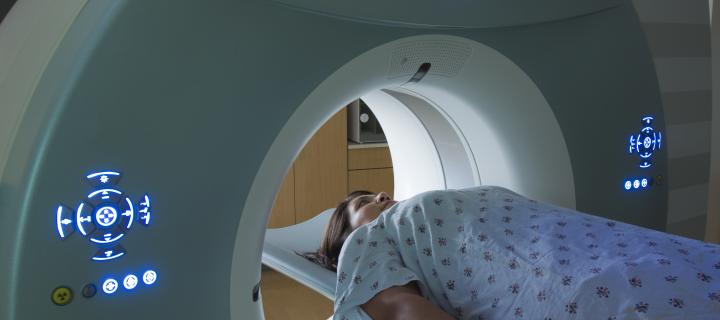
Radiotherapy after breast conserving surgery in conjunction with chemotherapy or tamoxifen to treat early breast cancer reduces the risk of the disease returning in the same breast in the next ten years but makes little difference to that risk thereafter. Nor does it improve overall survival after 30 years.

